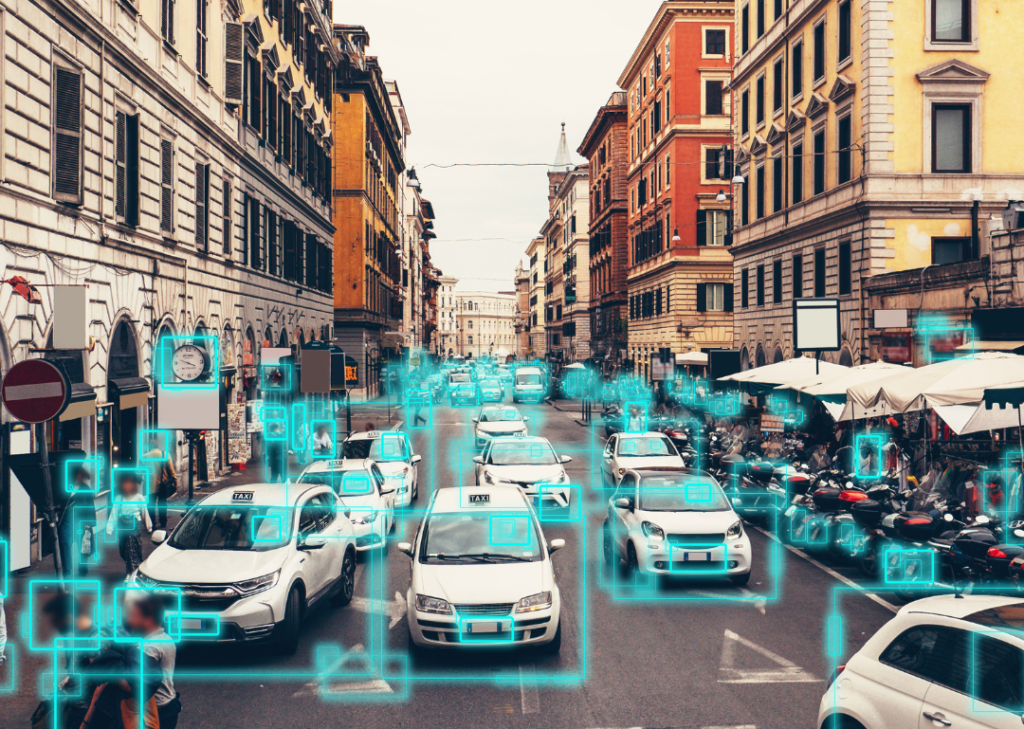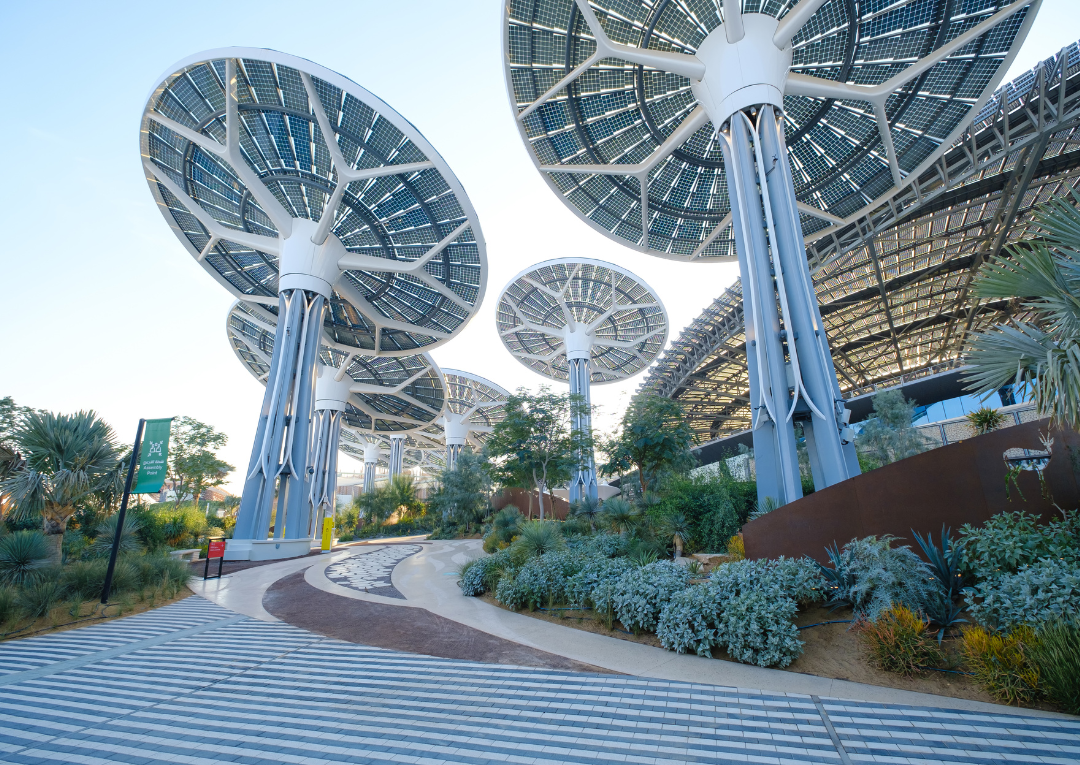Welcome to the fascinating world of Artificial Intelligence (AI) in the United Arab Emirates (UAE)! As this rapidly evolving technology continues to shape our future, the UAE is at the forefront of embracing its potential. From transforming industries and improving efficiency to creating new avenues for growth and innovation, AI is revolutionizing how we live and work.
In this blog post, we will delve into the current state of AI technology in the UAE and explore its benefits and challenges. We will also take a closer look at major industries harnessing AI’s power, government initiatives driving its adoption, as well as ethical concerns surrounding its development. So fasten your seatbelts as we embark on an exhilarating journey into the future of AI in the UAE!

The current state of AI technology in the UAE
The current state of AI technology in the UAE is nothing short of remarkable. With its strategic vision and forward-thinking approach, the country has made significant strides in adopting and implementing AI solutions across various sectors. From healthcare to transportation, businesses are leveraging the power of AI to enhance efficiency, improve decision-making processes, and deliver personalized experiences.
One area where AI has gained significant traction in the UAE is smart cities. Dubai, for instance, has embraced AI-driven technologies to create a seamless urban environment that enhances citizens’ quality of life. Smart traffic management systems optimize traffic flow and reduce congestion while intelligent energy grids ensure efficient utilization of resources.
Moreover, AI-powered chatbots have become ubiquitous in customer service interactions across industries. These virtual assistants provide real-time assistance round-the-clock, improving response times and enhancing customer satisfaction.
In addition to its use within private enterprises, the government has also been actively promoting the development and adoption of AI technology through various initiatives. The Dubai Future Foundation’s ‘Dubai 10X’ program aims to position Dubai ten years ahead by embracing disruptive technologies like AI.
As we look at the current landscape of AI technology in the UAE, it is clear that this transformative force is making waves across industries and reshaping how businesses operate. And with an ongoing commitment from both public and private sectors alike, we can expect even more exciting advancements on the horizon!

Benefits and challenges of implementing AI in UAE
AI technology brings numerous benefits to the United Arab Emirates (UAE), but it also presents its fair share of challenges. One major benefit is enhanced efficiency across various sectors, including healthcare, transportation, finance, and customer service. AI-powered systems can analyze vast amounts of data quickly and accurately, leading to faster decision-making processes.
Additionally, AI has the potential to improve safety and security measures. For instance, intelligent surveillance systems can identify suspicious activities or objects more effectively than human operators alone. This helps safeguard public spaces and critical infrastructure.
Furthermore, implementing AI technologies can contribute to economic growth by boosting productivity levels. Automation through robotics or machine learning algorithms can streamline operations in manufacturing plants or logistics warehouses. This not only increases output but also reduces costs over time.
However, there are challenges associated with implementing AI in the UAE as well. One obstacle is the need for skilled professionals who understand how to develop and maintain these advanced technologies. The country must invest in education programs that train individuals in AI-related fields to meet this demand.
Another challenge lies in ensuring data privacy and cybersecurity when dealing with sensitive information collected by AI systems. Stricter regulations are necessary to protect individuals’ data from misuse or unauthorized access.
Moreover, ethical dilemmas arise concerning job displacement due to automation. While some jobs may be eliminated with the rise of AI technology, new roles will emerge that require human creativity and problem-solving skills alongside machines’ capabilities.
While there are undeniable benefits associated with implementing AI technology in the UAE’s industries and services sectors; careful consideration must be given to overcome its inherent challenges.

Major industries in UAE utilizing AI
The rapid advancement of artificial intelligence (AI) technology is revolutionizing various industries around the world, and the UAE is no exception. In recent years, several major sectors in the country have embraced AI to enhance their operations and drive growth.
One industry that has prominently adopted AI in the UAE is healthcare. With AI-powered algorithms and machine learning models, medical professionals can analyze large volumes of data to identify patterns and make accurate diagnoses. This not only improves patient care but also helps in developing personalized treatment plans.
Another sector leveraging AI capabilities is transportation. The use of autonomous vehicles powered by AI algorithms has gained momentum in the UAE. Self-driving cars are being tested on roads, promising safer and more efficient transportation systems for residents and visitors alike.
In addition, the finance industry has embraced AI technologies for fraud detection, risk assessment, and customer service automation. Chatbots powered by natural language processing enable banks to handle customer queries round-the-clock while reducing costs associated with human resources.
Moreover, retail companies are using AI solutions like recommender systems to provide personalized shopping experiences to customers based on their preferences and buying behaviour. This allows businesses to increase sales while improving customer satisfaction levels.
Furthermore, educational institutions are incorporating AI into their teaching methods through intelligent tutoring systems that adapt to individual student needs. These platforms provide personalized guidance and feedback to students, enhancing their learning experience.
These examples highlight just a few major industries adopting AI technology in the UAE. However, it’s important to note that each sector faces its unique challenges when implementing these technologies effectively – from data privacy concerns to ensuring ethical usage of algorithms.
Government initiatives and investments in AI technology
The UAE government has recognized the transformative potential of artificial intelligence (AI) and has taken proactive steps to promote its development and adoption. With a vision to become a global leader in AI, the government launched the UAE Strategy for Artificial Intelligence in 2017.
Under this strategy, various initiatives have been implemented to support the growth of AI technology. One such initiative is the establishment of dedicated research centres and innovation hubs focused on AI, such as the Mohamed bin Zayed University of Artificial Intelligence (MBZUAI) and Dubai Future Foundation’s Area 2071.
To accelerate innovation in AI, substantial investments have been made by both the public and private sectors. For instance, the Abu Dhabi Investment Office (ADIO) offers attractive incentives to companies specializing in advanced technology like AI. Additionally, several venture capital funds have been established to fund startups working on cutting-edge AI solutions.
Collaboration between academia, industry, and government organizations plays a crucial role in fostering technological advancements. The UAE government actively encourages partnerships with international tech giants like Google DeepMind through initiatives like the Data Science Initiative.
To ensure the ethical use of AI technology, regulatory frameworks are being developed by entities like Smart Dubai. These regulations aim at safeguarding privacy rights while promoting responsible deployment of AI systems across industries.
By investing heavily in research facilities, providing financial support to startups, fostering collaboration with global players, and implementing robust regulations for ethical use – it is evident that the UAE government is committed to propelling its leadership position in adopting advanced technologies like artificial intelligence.
As we move forward into an increasingly digital future, it’s exciting to see how these efforts will shape not only the landscape of UAE but also contribute towards global progress in harnessing artificial intelligence for societal benefits

Impact of AI on the job market in UAE
The rapid advancements in AI technology have sparked both excitement and concern about its impact on the job market in the UAE. While AI has the potential to automate certain tasks and streamline processes, it is crucial to understand that it will not replace human workers entirely.
AI can augment human capabilities, freeing up employees from repetitive or mundane tasks and allowing them to focus on more strategic and creative aspects of their roles. This shift towards a more value-based workforce can lead to increased productivity and innovation across various industries.
However, there are concerns about job displacement as some routine jobs become automated. The key is for individuals to adapt and acquire new skills that complement AI technologies. Upskilling programs should be implemented to equip workers with the necessary expertise needed for emerging job roles.
The job market will also see an increase in demand for professionals specializing in AI development, data analysis, cybersecurity, and ethical oversight of AI systems. These high-skilled positions will require individuals who possess a deep understanding of artificial intelligence algorithms, machine learning techniques, and ethical considerations surrounding their use.
Moreover, the integration of AI into industries such as healthcare, finance, logistics, manufacturing, retail, and customer service will create new employment opportunities. Companies that embrace these technologies will seek individuals who can efficiently manage complex systems involving humans working alongside intelligent machines.
In conclusion (not concluding), while there may be some disruption in certain sectors due to automation driven by AI technology in UAE’s job market; the overall scenario demands collaboration between humans & machines which creates new possibilities rather than eliminating existing ones
Ethical concerns surrounding AI development in UAE
As artificial intelligence (AI) continues to advance, it brings with it a host of ethical considerations that need to be taken into account. The UAE has recognized the importance of addressing these concerns and has actively worked towards developing guidelines and frameworks for responsible AI development.
One major concern is privacy. With AI systems collecting vast amounts of data, there is a risk of personal information being misused or exploited. It is crucial for companies and government entities utilizing AI technology to prioritize data protection measures and ensure transparency in how data is collected, stored, and used.
Another ethical concern relates to bias within AI algorithms. Since machine learning models are trained on historical data, they can inadvertently perpetuate existing biases present in the training data. This can lead to discriminatory outcomes in areas such as hiring practices or loan approvals. To address this issue, developers must actively work on creating unbiased datasets. Regularly audit their algorithms for any biases that may have crept in.
Transparency also plays a vital role when it comes to ethical AI development. There should be clear explanations of how decisions are made by AI systems. That users can understand why certain recommendations or actions are being taken. This not only helps build trust but also allows individuals affected by these decisions to challenge them if needed.
Furthermore, there are concerns regarding job displacement due to automation brought about by AI technology. As machines become more capable of performing complex tasks traditionally done by humans. There is an understandable fear that jobs will be lost at an alarming rate. However, proponents argue that while some jobs may indeed become obsolete, new roles will emerge. Which require human skills complemented by advanced technologies.
Future predictions for the growth of AI technology in UAE
The future looks incredibly promising for the growth and development of AI technology in the UAE. With its strong commitment to innovation and technological advancements. The country is poised to become a global leader in artificial intelligence.
One major area where we can expect significant growth is in autonomous vehicles. The UAE has already made remarkable progress in this field, with self-driving taxis being tested on the streets of Dubai. In the coming years, we can anticipate widespread adoption of autonomous vehicles not only as a means of transportation. But also for logistics and delivery services.
Another sector that will witness substantial advancements is healthcare. AI-powered systems have immense potential to revolutionize medical diagnoses, treatment plans, and patient care. Predictive analytics can be utilized to identify diseases at an early stage. While smart medical devices can help monitor patients remotely. This integration of AI into healthcare will lead to more accurate diagnoses, reduced waiting times, and improved overall health outcomes.
Furthermore, industries such as finance and banking are expected to experience significant transformation through AI implementation. Chatbots powered by natural language processing will provide personalized customer service round-the-clock while minimizing human errors. Additionally, machine learning algorithms will aid fraud detection and risk assessment processes within financial institutions.
The education sector is also likely to see tremendous changes with intelligent tutoring. Systems offering personalized learning experiences tailored to individual students’ needs. Virtual reality (VR) technologies combined with AI capabilities will create immersive educational environments that enhance student engagement and knowledge retention.

Conclusion
As we have explored the current state of AI technology in the UAE, it is evident. That country is making significant strides towards embracing and implementing this transformative technology. The benefits of AI are vast and wide-ranging, from enhancing efficiency and productivity to improving decision-making processes across various industries.
However, along with these advantages come challenges that must be addressed. Privacy concerns, ethical considerations, and job displacement are some of the key areas. That needs careful attention as AI continues to evolve in the UAE. Policymakers, businesses, and individuals must work together to ensure responsible development and deployment of AI technologies.
The government’s commitment to fostering an environment conducive to AI innovation is commendable. With substantial investments in research centres and initiatives such as the UAE Strategy for Artificial Intelligence 2031, the nation has positioned itself as a hub for cutting-edge technological advancements.
Major industries such as healthcare, finance, transportation, education, and retail are already reaping the benefits of integrating AI solutions into their operations. From personalized medical diagnoses to automated financial transactions and autonomous vehicles on Dubai roads. The potential applications of AI across sectors are limitless.
While there may be concerns about job displacement due to automation enabled by artificial intelligence systems in UAE; it is important not only to focus on potential losses but also acknowledge new opportunities that will arise through skill upgradation programs focused on data science or machine learning fields.
Looking ahead into the future of AI technology in UAE holds great promise. As investments continue to pour into research institutions and startups working on innovative solutions; we can expect even more rapid progress in areas like natural language processing (NLP), computer vision systems or robotics – further transforming our daily lives.





